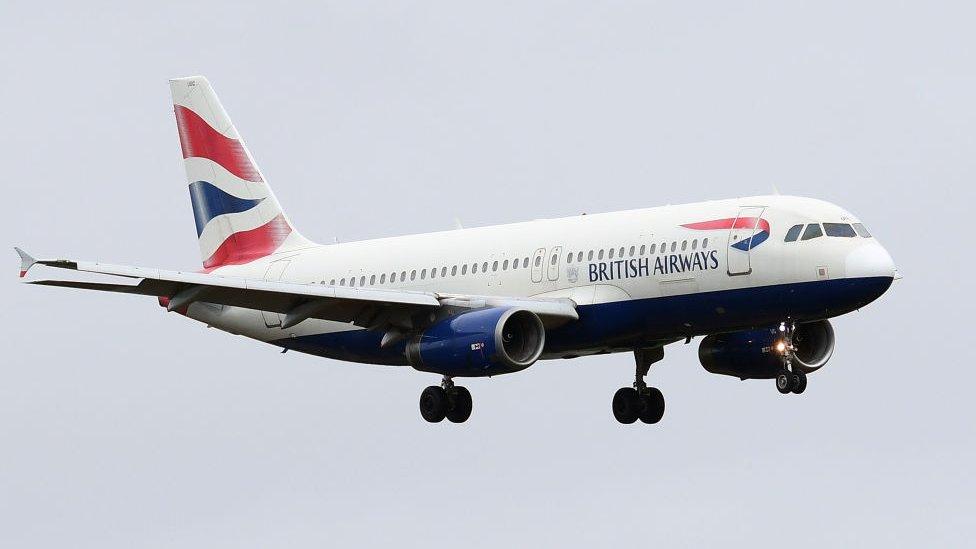Emirates will keep flying to Russia unless its owner stops it
- Published
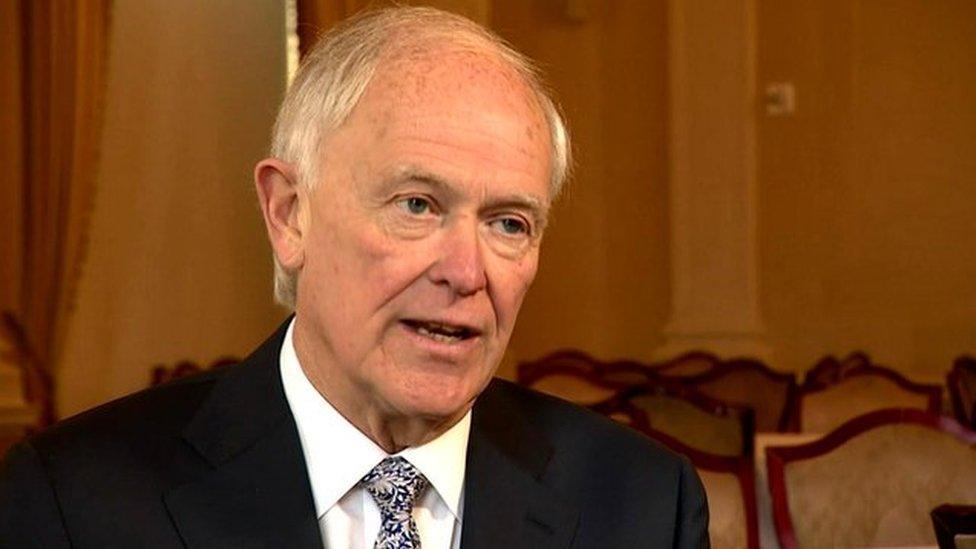
Emirates President Sir Tim Clarke says the decision to stop flying to Russia is one for the United Arab Emirates government to take
Emirates' boss says the airline will keep flying to Russia unless its owner, the Dubai government, tells it not to.
"If we are told to stop we will stop, unless we are told otherwise, we will continue," Sir Tim Clarke told the BBC.
Most major international airlines pulled out of Russia amid sweeping sanctions imposed by Western countries since the war began in Ukraine.
But Emirates is one of the few carriers that is still operating flights to Moscow and St Petersburg.
When asked if the airline would reconsider its position, Emirates president Sir Tim said that "it was not his call" but a decision that the United Arab Emirates (UAE) government would take.
As well as carrying passengers, the airline also transports cargo including humanitarian goods, food and medical supplies, which are not on the sanctions list.
Sir Tim added that it was important to recognise the Russian population may not be part of the war in Ukraine.
And that the diplomatic core of other countries, who have missions in Moscow need to be able to function by moving in and out of the country.
He said: "We are catering to people who are on the periphery of the main issue here, and that is probably the way the [UAE] government looks at it."
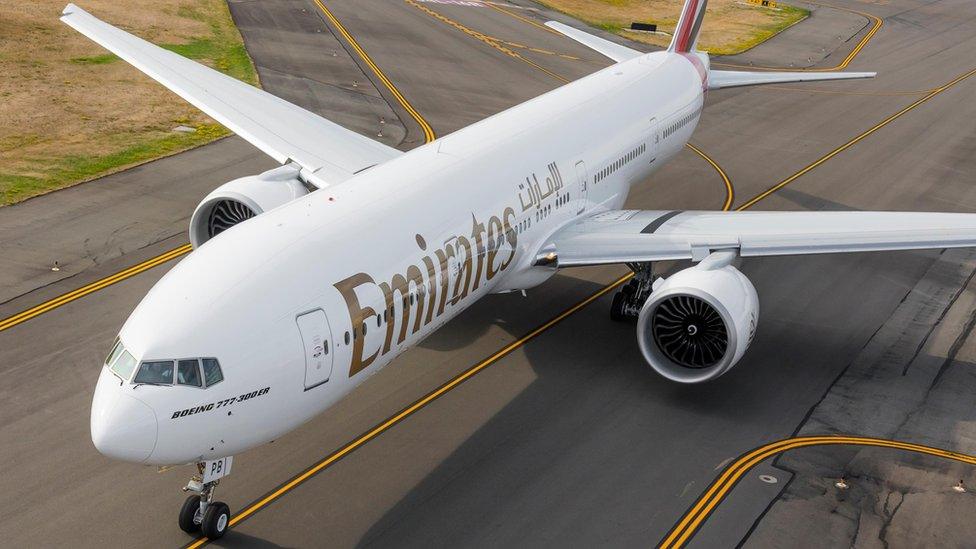
Emirates has added a fuel surcharge to airfares in response to high oil prices caused by the war in Ukraine
The United Arab Emirates and Saudi Arabia have rejected calls from western governments to impose sanctions on Russia.
Abu Dhabi has also not severed economic ties with Moscow. It was one of only three countries, along with China and India, to abstain in a United Nations Security Council vote in February to condemn Russia's invasion of Ukraine. It also abstained in a General Assembly vote on 7 April to suspend Russia from the UN Human Rights Council.
Since the outbreak of the war, Moscow has faced a barrage of unprecedented sanctions, including bans on Russian aircraft using airspace and airports in the US, the EU, the UK and Canada.
International flights by Russian airlines have been severely curtailed due to the sanctions. National carrier Aeroflot has suspended all international flights, except for its service to the Belarus capital Minsk, due to the sanctions.
Sir Tim believes that the war in Ukraine could spell long term implications for the global airline industry, especially if Russia is excluded by the West from the global economy.
"This [war] will have major manifestations of perhaps disadvantage for both sides. And this will have an impact on the industry," he said.
Sir Tim said Emirates was seeing strong demand despite high oil prices. The airline has passed on the cost to consumers by adding a fuel surcharge to airfares but that hasn't impacted bookings.
"Irrespective of that, people are ready to pay the prices that we have to charge to cover this enormous increase in the fuel price," Sir Tim said.
He added that the airline industry was used to dealing with high oil prices but said he felt that budget carriers would find it difficult get through this without taking a financial hit.
Brent, one of the main benchmarks for oil, has been trading above $100 for nearly two months since the Russia-Ukraine war triggered volatility in global energy markets.
The International Air Transport Association (IATA) has warned that the airline industry's overall financial performance in 2022 is likely to worsen due to the challenge of higher oil prices. Jet fuel makes up about a quarter of an airline's costs.
'Roaring demand'
Despite the recent setbacks, Sir Tim said that Emirates had returned to profitability over the last six months due to "roaring" demand.
The carrier expects to report improved annual earnings this year after it posted a loss of $5.5bn in the 2020-2021 fiscal year as the Covid-19 pandemic ravaged the global aviation industry.
The Dubai government injected $3.1bn into Emirates to bail out the state-owned airline, which was forced to ground flights and lay-off thousands of employees after the outbreak of the pandemic.
Sir Tim said the airline was now looking to hire 3,000 to 4,000 cabin crew and additional pilots on the back of booming travel demand.
"If we can have all our aircraft flying today, 270 of them then we would. I can't because I am just short of crew," he said.
- Published23 February 2024
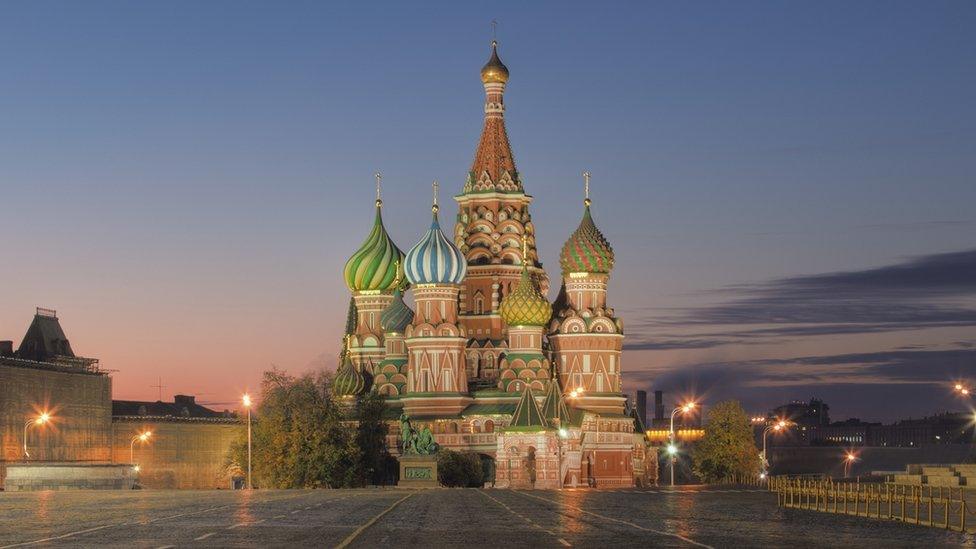
- Published27 February 2022
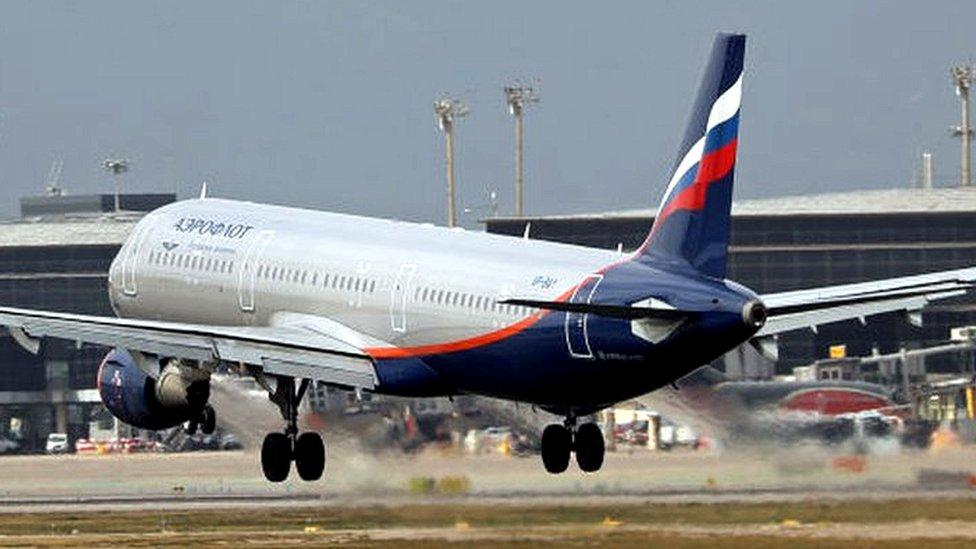
- Published25 February 2022
